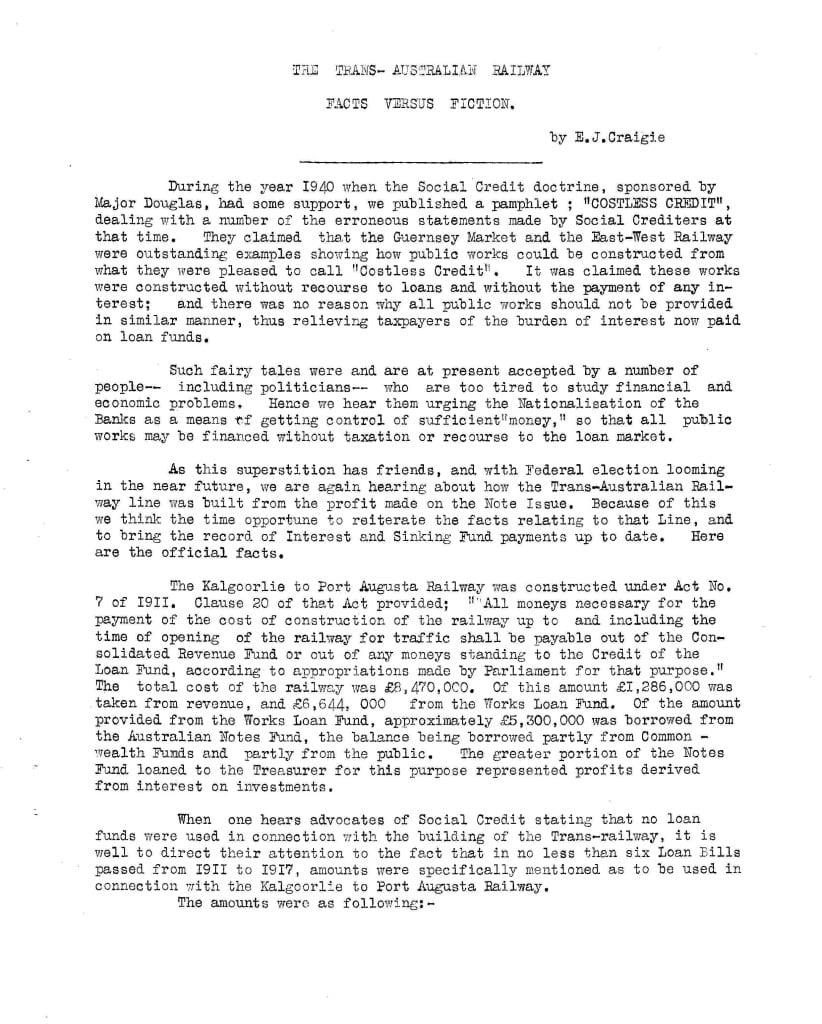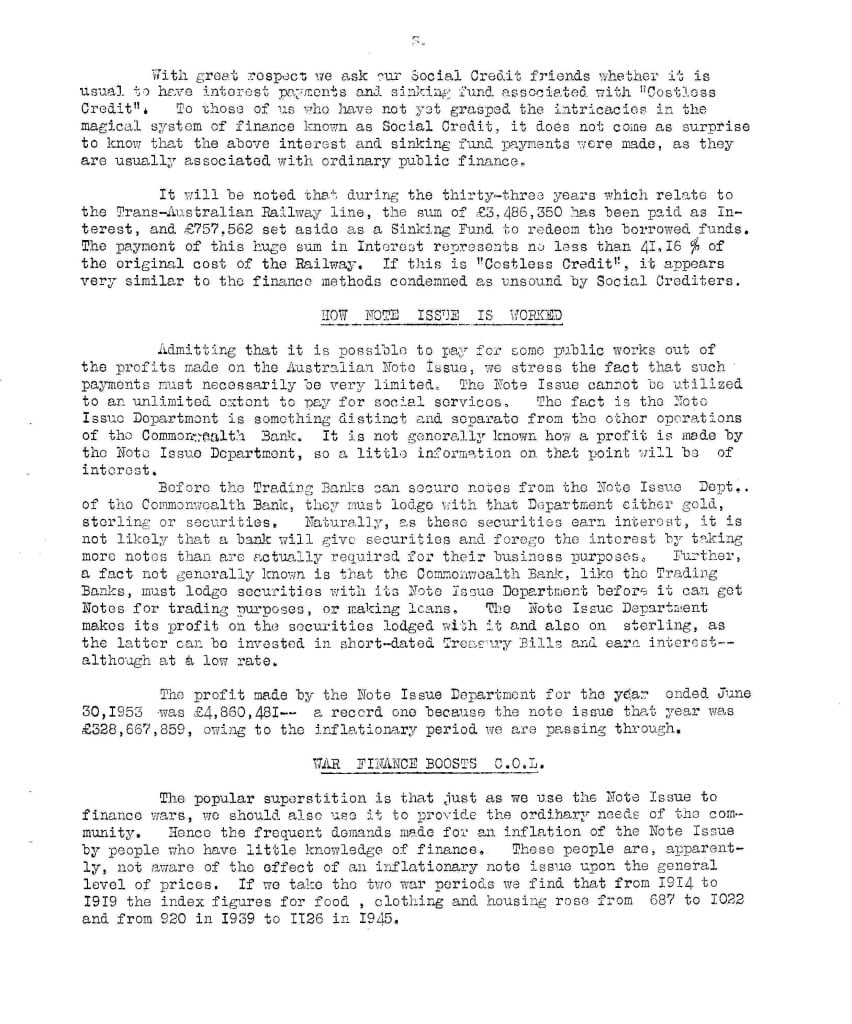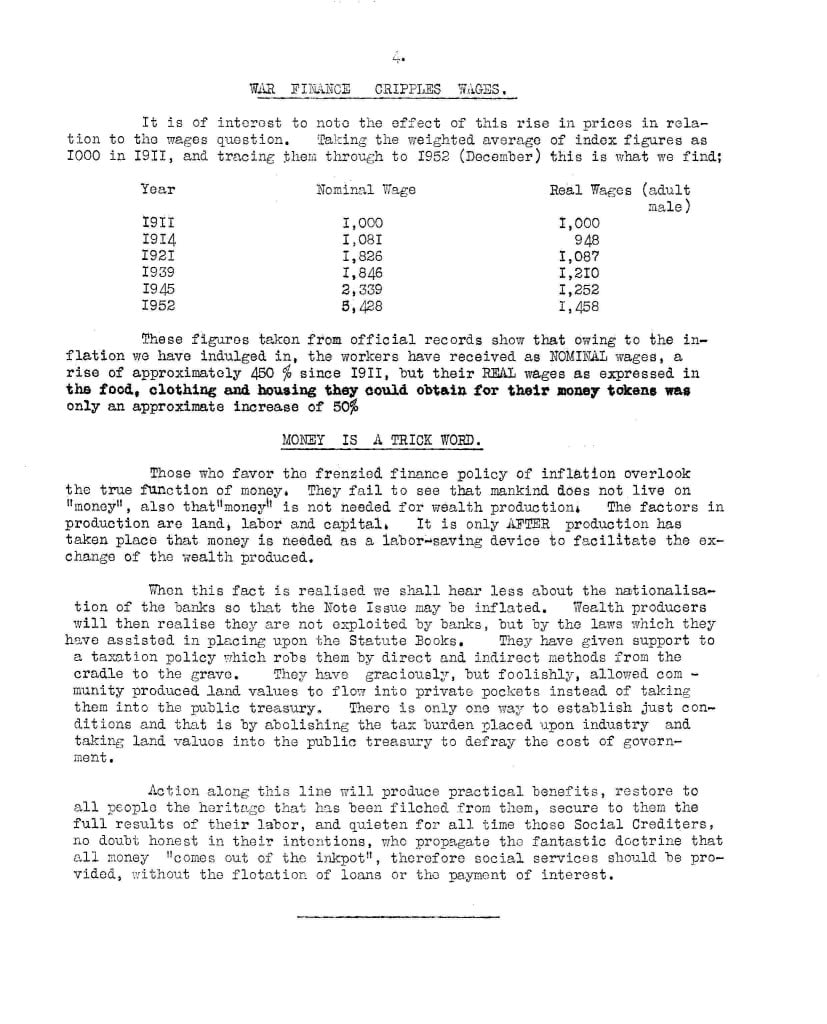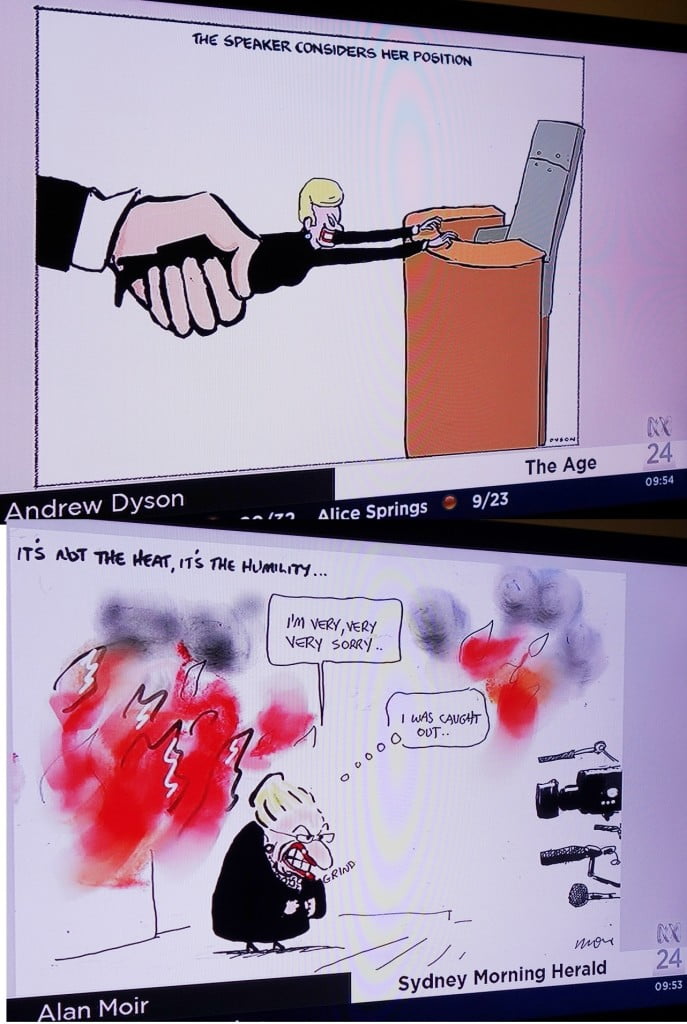
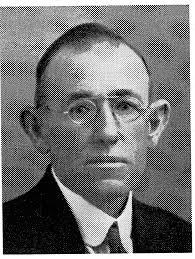 Edward John Craigie (1871 – 1966) was the independent member for Flinders in the South Australian parliament from 1930 to 1941. A man of great integrity and brilliance, and a thorn in the side of both Liberal and Labor parliamentarians, he was finally defeated when the two parties shared preferences to oust him. Of the candidates, he still achieved the highest vote.
Edward John Craigie (1871 – 1966) was the independent member for Flinders in the South Australian parliament from 1930 to 1941. A man of great integrity and brilliance, and a thorn in the side of both Liberal and Labor parliamentarians, he was finally defeated when the two parties shared preferences to oust him. Of the candidates, he still achieved the highest vote.
Speaking recently with ninety-six year-old longstanding South Australian Georgist, George Jukes, who knew Craigie as a “quiet and unassuming” man and an exceptional parliamentary performer, he recounted the story to me that when booth figures were returned following one election, the local bank manager was heard to berate his wife and daughter for having voted for Craigie. The secret ballot had not worked to help these ladies: only two votes, including his opponent’s, had been recorded against Edward John Craigie in that particular booth!
The following attest to EJ Craigie’s painstaking research and his enduring determination to repair the Australian social and economic fabric during the Great Depression. They are excellent historical documents in their own right.
A study in central Melbourne land values 1935 – insights into the original subdivision of the city of Melbourne.
An appreciation of the political life of EJ Craigie
Costless Credit 1940
Jubilee without jubilation 1951
Land and Wages – an amazing historical tour de force.
Municipal justice – the case for land value rating
Protection or free trade 1942?
Rural rehabilitation 1935
Sales tax versus land tax 1958
Should the community buy back the land? 1960?
The case against the sugar embargo 1935
The tariff and its effects on industry 1931
The taxing and rating of land values in Australia (1939)
The trans-Australian railway facts versus fiction 1954?
Economics is simple. From before the time of Confucius and the Old Testament up until today, many great philosophers have understood and supported the economic principles that have become known as Georgism. This was because the American Henry George explained it best, answering in detail each and every claim that has ever been put against it. (If you have your doubts, you need to read Progress and Poverty – or listen to the 18-hour audio version here.)
Nations have three options. They can can draw revenues only from land, labour or capital. (Four perhaps: from combinations of all three.)
If they draw most revenue from labour and capital, these taxes act as deadweight upon labour and capital and are passed on in prices. Economies taxing mainly labour and capital will tend increasingly to deter labour, capital and productivity, encouraging inflation – and speculation in land that grinds into regular recessions or a major deflation.
Economies that tax land will be successful, because a tax on land is actually a non-tax, a rent that cannot be passed on in prices. They will be so productive that they will encourage capital formation, higher wages and profits (without inflation), and deter speculation in land. They would be productive enough to generate a universal basic income for all citizens.
Once people comprehend these fundamental economic facts, they will marvel at the stupidity of the tax regimes under which world economies currently struggle.
How is it that economists, tax lawyers and accountants are the last to appreciate these facts?
The only conclusion you can reach is that our education systems are failing us: we have become too ‘sophisticated’ for our own good.


